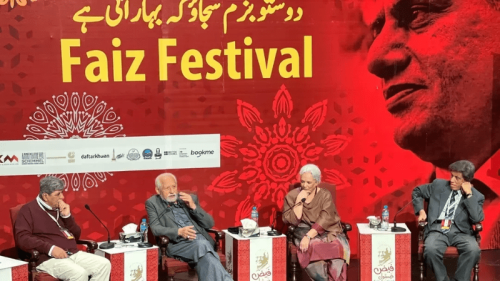KARACHI: Goods piled up at the port and the roads fell silent as the first day of the lockdown across Sindh province brought most movement to a halt on Monday.
The port has been included in the list of essential services by the provincial government to keep it operational so shipping activity was described as “normal” by the port authorities, but cargo volumes are already down by anywhere from one third to a half because of shrinking imports from China, according to Muhammad Rajpar, former chairman of Pakistan Ship’s Agents Association.
On Sunday, before the lockdown took effect, Chairman Karachi Port Trust met with stakeholders like goods transporters, Karachi Dock Labour Board, representatives of stevedoring companies, terminal operators, and KPT management to determine how port operations can be continued under lockdown. They determined that trucks carrying items considered “essential”, such as food, will not be obstructed by law enforcement bodies enforcing the lockdown. These trucks will carry an authority letter to grant them passage.
From the port to manufacturers and industry, transport and tech, nobody has been spared from the fall-out of the Covid-19 crisis. At the port the authorities began separating all cargo into essential and non-essential categories and allowed the former to pass out of the gate while the latter was stacked, awaiting a decision how its transport is to be arranged under a lockdown.
All industrial zones of the city were shut with pharmaceutical and food related industries the only ones that were still running. Later in the day orders arrived from the Sindh Home Department that “no worker shall be laid off and all kind of workers shall be paid salaries/remuneration/wages in full” during the lockdown period.
With the port open only for essential items, manufacturers saw raw material and machinery imports stacked in the open.
Port officials told Dawn they had no clear timeline when the “non-essential” items would be allowed to leave the port. “This is a matter for customs to decide because they are the real custodians of this cargo,” they said.
Textile exporters from the city of Karachi lobbied the provincial authorities as well as federal for permission to be allowed to finish processing those orders that are already in the pipeline and which have not been cancelled or postponed by their buyers.
They won a nod from the chief minister Sindh earlier in the day that their concerns will be addressed later in the week, and later at night Commerce Adviser Razak Dawood tweeted saying “I have spoken to the Chief Minister Sindh, and he has allowed exporters with balance orders to operate their factories. They must inform Depts of Industry & Labour (Sindh Govt) & bring only essential workers. Those that come must properly be examined & necessary procedures followed against #covid19.”
In addition a one-hour long videoconferencing call was held between the governor Sindh, members of the business community and Finance Adviser Abdul Hafeez Shaikh around noon in which demands for wider support were aired.
The business community from around the country now await the shape of the final “incentive package” that is to be announced by today.
Finance did not evade the impact either. At the stock market a dilemma arose around how to continue trading operations even as markets around the world are seeing sharp declines. Memories of 2008 were stoked as brokers called for a shutdown of trading on the stock market.
Brokers and regulators scrambled to avoid a repeat of the 2008 fiasco that saw the market frozen but no clear roadmap on how to reopen trade without seeing destabilizing outflows.
Meanwhile facing mounting calls for a moratorium on debt payments, banks have opened a channel of communication with the State Bank. Industry leaders are arguing that debt service payments should be halted for a period to enable them to make salary commitments during the lockdown.
Muhammad Aurangzeb, Chairman of the Pakistan Banks Association said “active discussions” are ongoing with the central bank “to work out various measures to provide relief to the borrowers. We expect announcements to come out in this regard during the week”.
Published in Dawn, March 24th, 2020



















































